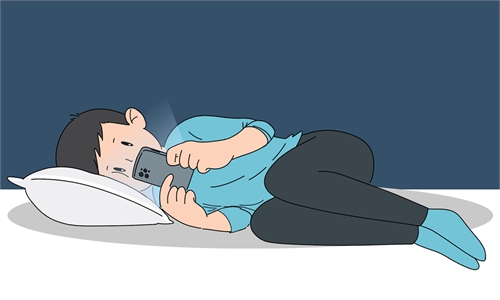ARTS / CULTURE & LEISURE
Side job is young people's Plan B

Illustration: Chen Xia
If you are working a side job during your spare time, you are not alone.
The 2023 Youth Sideline Report by the Houlang Research Institute shows that 44.7 percent of young people have side job experience, while the over 50 percent who do not indicated they would be willing to give it a try. As to income, 15.4 percent fail to earn money, while nearly 70 percent make less than 3,000 yuan ($400) per month. Those 12.6 percent who earn more than 10,000 yuan monthly usually have a much higher paying main job that is closely related to their side gig. Although most young people cannot make substantial income, they are still keen on side hustles. The question is why?
For one thing, uncertainty about the future fuels anxiety among young people who are then driven to find more ways to ensure economic stability. Many major enterprises have cut salaries, laid off employees, and even gone bankrupt. Under such circumstances, the side job is gradually becoming the "definite choice" of people in the workplace.
For another, young people achieve self-actualization and nourish their souls by doing spare-time jobs based on their hobbies and strengths. Work to live or live to work varies from person to person. One may not find a job that promises a living and is ideal at the same time. Still, a part-time job allows people to strike a balance between basic life and personal pursuits. Besides this, there are more benefits it can bring.
First, you can keep competitive by learning new skills and growing from a T-type (an individual who has deep expertise or specialization in a specific area) to a π-type talent (an individual who possesses a diverse skill set, akin to the symbol π (pi) which represents the mathematical concept of an irrational number with infinite digits.) It lays a solid foundation for broader development. Multi-skills integration or cross-border learning facilitates the formation of the Second Growth Curve. For example, suppose you are in the finance industry and are considering writing as a second skill. In that case, if you combine the two, you are likely to become a finance blogger, spread knowledge, and gain influence.
Second, sideline work is a low-cost, trial-and-error way to explore more possibilities in your life planning. When you move up the career ladder, you can try some sideline work related to your main job, such as another role in the industry. This helps you comprehend the business from different angles and think about future development from a more macro perspective. A side hustle is a means to accumulate energy and expand opportunities.
Third, you can refresh yourself and gain enthusiasm by sometimes shifting to another channel. After getting tired of doing one thing for a long time, it is better to try another. This is human nature, which should be respected. Exploring new things can bring a sense of freshness and stimulate enthusiasm. For instance, if a second job is based on your interests or hobbies, you can gain a steady stream of confidence and power from this other job, strengthening your heart when you feel down at your main job.
Unlike the emphasis of side jobs advertisements, whose aim is purely to make money, moonlighting can provide young people with a source of value, a sense of control over life, a spiritual healing force, and an impetus to career development.
The fact that young people are trying part-time jobs is a positive signal, indicating that they are not "lying flat" and are working hard to continue exploring. However, it would help if you considered the following aspects when engaging in a sideline hustle.
On the one hand, you should consider the time and energy cost. Your main job already depletes your energy every day. Getting a side job is sure to impact the quality of your work at your main job. After all, one's time and energy are limited.
On the other hand, if you are not excelling at your primary job, your spare time should be used to improve your abilities in this area. You'd better avoid doing something that has nothing to do with your main job, especially when it is in a relatively unique and promising field that can amplify your ability by a hundred times or a thousand times. You should only choose a side job when your main job is done well; otherwise, it may not be worth the loss.
The author is a faculty member with the School of Applied Economics, Renmin University of China.






